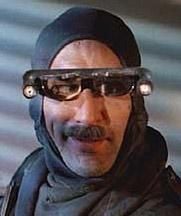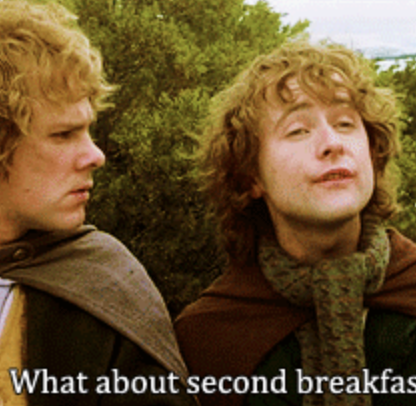I like the detail that there alien has 4(10) fingers as opposed to the 10(22) that the human has.
Now I get the joke.
Thanks!
Huh, that’s a good point. A better universal naming system would be something like “Base x+1”, with x being one integer lower than 10. So humans would use Base 9+1, and the alien would use Base 3+1.
*This has been on my mind all day and the more I think about it, the more obvious it becomes how fundamentally terrible the name “Base-10” is. How did this never occur to the people who coined the term? Even the system I suggested is flawed as it’s still trying to incorporate the same bad logic.
A better system would be something like Base 9, stopping shy of the respective 10 in each system, or if it needs to be clarified, Base 9+0, as 0 is the extra digit in the first place, not 10.
we’d only be able to represent bases for numbers with one digit though because what does base 15+1 mean? the 15 could be in any base higher than 5. the clearest way would probably be to just represent it with lines or something “base ||||||||||”
Base 16 is typically represented with letters being used as the extra numerals, so it would end up being F+1. Problem solved.
what about numbers larger than 16?
We’ve got base 64, though it doesn’t quite follow the convention of starting with digits and following up with letters:
- This is why I say “10” is not a number, it just means one big group and zero remainder.
- I am a huuuuge proponent of dozenal (base-12)
10 is actually only 2. The number of people misunderstanding binary here is mind blowing xD.
Octal is base 8. Decimal is base A. Hexadecimal is base G. Any questions?
Jesus Christ.
I just realized that we call binary base2 and there’s no 2 in that numbering system. We call hexadecimal base16 but there’s no 16 (at least not like we know it). But then why is base10 base10? We have a 10…but it’s not a single digit number.
Why is this reminding me of Project Hail Mary?
Every base has ten, but it’s made of two digits
Binary 0, 1, 10 Ternary 0, 1, 2, 10 … Decimal 0, 1, 2, 3, 4, 5, 6, 7, 8, 9, 10 Hex 0, 1, 2, 3, 4, 5, 6, 7, 8, 9, A, B, C, D, E, F, 10
Each has the right count of digits for its base before you go two-digit - binary has two (0, 1), etc
more precisely, every base has 10, but it’s usually not equal to ten. ten is a fixed value, while 10 depends on the base. you still count normally (one two three four five), even in a base two system. you just write it differently.
I don’t see the need to bring values into this, this is about the naming of number systems. We really have no more claim to ten being this many (…) than hexadecimal people have to claim ten has this many (…)
10 as the first overflow of digits is not a clear vlaue, it depends on the notation because its base is unclear.
Ten as the English word is 100% defined. The issue is we translate seamlessly between the word and number, but there really is no confusion when writing ten. 10 in hex has a different english word: sixteen.
English number names are mostly decimal-based, but their values are still fixed. Ten isn’t the word for “the first time our number system overflows”, it’s an amount.
So I disagree. Ten will always be (…) this many, because it’s an English word.
If you are working in a different number system with other people ten loses its unique meaning just like any word that has another technical meaning.
In code 0x10 is hex 10 (what you’d call sixteen), but in spoken technical English you don’t need to pronounce the 0x
I like that the alien has 4 fingers. Fitting!
It’s 10 fingers. Just keep your freaky 11 finger hands of this serious discussion
Wouldn’t it be 22?
Yes, in total, but 11 per hand
Can we all use base 12?
It will be a shower of shit for like 50 years but then it will be marginally better for pretty much everyone.
42* years. Centuries are now 84 years. We are living in the 19th century! I rate this idea 12/12.
50 years? I bet we couldn’t even agree on how to write “11” & “12” on such short notice. (See: date format, encoding, etc)
we could just go with the hexidecimal way and go with A,B,C for 10,11 and 12
No, 12 in base 12 is 10, not C. But yes, 10 can be A and 11 can be B
Dude’s out here trying to get us to use base 13.
Why not?
Why not use a large prime as the base?
Honnest answer, 1/2 in DEC is 0.5 easy. 1/2 in base 13 is .6666666666… Easy but ugly. You want a base that has comon fractions easily represented by decimals. People like dozenal since many fractions are easily represented. 1/2 = 0.6, 1/3 = 0.4, 1/4 = 0.3
I’m personally a fan of hexidecimal partly because I’m a programmer and partially because it can be halved several times
Well we write 12 like this: 10
It’s easy
oops I mean “10” & “11”
Some people argue that it would be harder to count on your fingers but we could just surgically give everyone more?
There are 12 sections on your fingers (excluding your thumb) you then use your thumb to count to 12 on one hand.
Two hands can allow you to count to 24. Which is way higher than 10. Base 12 is better!
Binary’s the way. 1023 with 10 fingers
Based.





